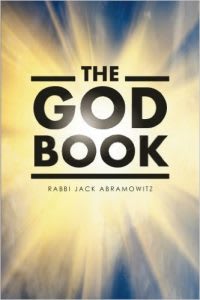3.16 Those Who Rely Upon God vs. Those Who Don’t
Shaar HaBitachon Chapter 5
There are seven differences between a person who trusts in God and one who doesn’t.
1. One who trusts in God accepts His judgment in all circumstances and thanks God for the bad as well as for the good, as Job said, “God gives and God takes away; blessed be the Name of God” (Job 1:21). One who does not trust in God credits himself for good things (“An evil person boasts of his heart’s desire…” – Psalms 10:3) and blames God for the bad (“When he will be hungry, he will get angry and curse by his king and by his God” – Isaiah 8:21).
2. One who trusts in God is at ease no matter what happens because he knows that whatever happens is for his own good, as King David wrote, “Wait for God calmly, my soul, for my hope comes from Him” (Psalms 62:6). One who does not trust in God is frequently stressed out, anxious, or sad, in both good times and bad. In good times, he is not content with his lot and he wants more; in bad times, because enduring hardship goes against his desires. Regarding this, King Solomon wrote, “All the days of poverty are evil; for one with a good heart, a perpetual feast” (Proverbs 15:15).
3. If one who trusts in God works for a living, he still doesn’t rely on his business for support, nor does he think that a profit or loss will occur unless God so desires it. If he turns a profit, he thanks God for it; if he doesn’t, he keeps on trying, accepting that God will provide what he needs through other means. One who does not trust in God relies on his business to supply him with a livelihood, expecting only profit and never a loss. When he is successful, he credits himself. If he takes a loss, he abandons the enterprise in favor of other means. Regarding such a person, Scripture says “He sacrifices to his net and offers incense to his fishing line because through them his portion is fat and his food plentiful” (Habakkuk 1:16).
4. If one who trusts in God has resources that exceed his needs, he generously and cheerfully spends it on things that will please God. Regarding this, I Chronicles 29:14 says, “Because everything comes from You and what we have given You is from Your hand.” If one does not trust in God, all the wealth in the world would not be sufficient to satisfy him. He hoards his wealth rather than spending it in ways that would serve God and his fellow man. Such a person can lose everything in one fell swoop. As King Solomon wrote, “One person gives freely and accumulates more, another withholds unnecessarily and comes to loss” (Proverbs 11:24).
5. One who trusts in God only engages in temporal activities as a means to fulfilling his spiritual goals. If a profession will impede his spiritual growth, he will not pursue it. One who does not trust in God relies completely on his activities and he pursues them regardless of the cost, with the result that some of his activities may be praiseworthy while others are shameful. King Solomon commented on this, saying “A wise man fears, and turns away from evil, while a fool behaves overbearingly and becomes confident” (Proverbs 14:16).
6. One who trusts in God is loved by all types of people because they know that he will not harm them in any way, nor will he become angry with them. He feels equally safe with them because he knows that no human truly has power to help or harm unless God wills it. The result is mutual trust and affection, as per Psalms 32:10, “One who trusts in God will be surrounded by kindness.” One who does not trust in God, however, is envious of others. In his mind, any goodness that someone else enjoys rightfully belongs to him; anything he doesn’t have was deprived to him by someone else. He blames others for his misfortunes and curses them because of it. As a result of this, such a person is held in disdain both in this world and the Next. Regarding such a person, King Solomon wrote, “A person with a crooked heart will find no good” (Proverbs 17:20).
7. One who trusts in God does not mourn if a request is denied or if loses something he cherishes. He doesn’t hoard and never worries about tomorrow because he trusts in God to supply him with his needs. Ben Sira, quoted in Talmud Sanhedrin 100b, says not to worry about tomorrow because no one knows what a day will bring. Perhaps one will die, so why should he waste energy worrying about a world that has no bearing on him? The only thing that worries one who trusts in God is the possibility that he may not be serving God to the best of his ability. He knows that he could perish at any time and he wants to be ready. Avos 2:10 says to repent the day before you die, which the Sages interpreted to mean every day, because one could always die tomorrow (Shabbos 153a). In the words of King Solomon, “Let your clothes be white at all times” (Koheles 9:8). One who doesn’t trust in God mourns all the time, any time his wishes are denied or he is deprived of something he desires. He hoards wealth as if he will live forever, giving no thought to his mortality. He neglects his spiritual needs, placing all his efforts into the physical. If he should happen to be chastised for his shortsightedness, he will justify his actions rather than accepting the rebuke.

